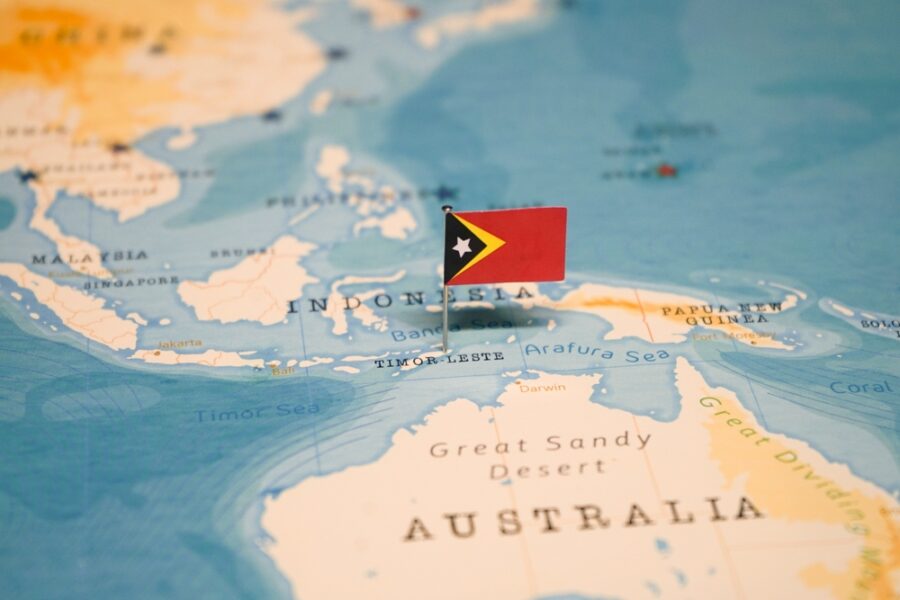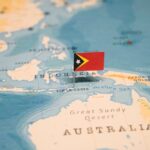Timor-Leste government approves cancellation of gambling licenses

The Timor-Leste government has approved a motion cancelling all existing and pending online gambling licenses.
The resolution, which the Council of Ministers in the country presented, came after a United Nations Office on Drugs and Crime report found criminal activity related to online gambling was taking place in the region of Oecussi.
The report was released after Timorese authorities arrested 10 individuals in Oecussi on suspicion of involvement in illegal gambling activity.
In the report, it was also noted that a member of the Timor-Leste government owned one of the hotels where the alleged illegal gambling operations were taking place.
The report compares criminal activity in Cambodia, Laos, Malaysia, and the Philippines, which recently contributed PHP50 million (US$860,887)1 PHP = 0.0172 USD
2025-10-02Powered by CMG CurrenShift to the National Bureau of Investigation’s efforts to eradicate illegal online gambling.
In a statement, the government promised strict enforcement of the new resolution to protect its international reputation amid concerns about “the risks to the country’s security, social stability, economic integrity and international reputation.”
These fears have been heightened by Timor-Leste’s impending admission to the Association of Southeast Asian Nations in October, as the potential for cross-border criminal activity could increase.
Charlotte Capewell brings her passion for storytelling and expertise in writing, researching, and the gambling industry to every article she writes. Her specialties include the US gambling industry, regulator legislation, igaming, and more.
Verticals:
Sectors:
Topics:
Dig Deeper
The Backstory
How Timor-Leste got here
Timor-Leste’s abrupt move to cancel all existing and pending online gambling licenses did not come out of nowhere. The decision followed a United Nations Office on Drugs and Crime report detailing criminal activity tied to online gambling in the enclave of Oecussi, a case that triggered the arrest of 10 suspects and raised questions about conflicts of interest after the report noted that a government official owned a hotel where activity allegedly occurred. Against that backdrop, the Council of Ministers approved a resolution pledging strict enforcement to shield the country’s security, social stability and reputation amid rising risks from cross-border schemes. The government’s shift, reported in detail after the Council acted, underscored the sensitivity of the issue ahead of the country’s expected entry into the Association of Southeast Asian Nations this October. The country framed the cancellation as a reputational defense as much as a law enforcement measure, with Oecussi now a focal point of risk and governance concerns. Read more on the government’s decision to cancel licenses and the Oecussi case in the report on Timor-Leste canceling gambling licenses after a UNODC alert.
The UNODC’s comparison to criminal patterns seen in Cambodia, Laos, Malaysia and the Philippines added urgency. Manila’s recent law-enforcement push, including a PHP50 million injection into the National Bureau of Investigation to fight illegal online gambling, was cited as a regional example of escalation. The signal to Dili was clear: unchecked online operations can rapidly morph into organized cross-border problems that demand swift regulatory containment.
A pivot from licensing to lockdown
The cancellation marks a sharp reversal from recent policy. In a bid to cultivate a regulated offshore industry, Timor-Leste earlier signed a concession with Golden River Universe Lda, designating the company as the country’s first licensed offshore online gambling operator under the Inspectorate General of Gaming. The award, announced by state media Tatoli, came with plans by affiliate Grand Dragon Loteria to relocate support and R&D hubs from Cambodia and the Philippines to Timor-Leste, complementing its existing digital lottery footprint. In August 2024, the Golden River group also struck an agreement with the State Government of Oecusse to build an Offshore Gambling Operators Hub for infrastructure and compliance. The deal was pitched as a catalyst for jobs, capability building and foreign investment. The rollout details are in Timor-Leste’s licensing of its first offshore operator.
But momentum encountered resistance. In early October 2024, the Philippines Department of Justice warned Timor-Leste about taking in former Philippine Offshore Gaming Operators, which Manila has effectively banned after linking them to security and socio-economic harms. The cautionary message to President Jose Ramos-Horta sharpened attention on vetting standards, beneficial ownership transparency and the downstream effects of migration by operators exiting tougher jurisdictions. As allegations surfaced around Oecussi and the UNODC report spotlighted risks, the calculus shifted from incubation to insulation. The new cancellation order suggests policymakers now see near-term downside in allowing even vetted offshore operations to scale before controls are fully proven.
ASEAN ambitions meet risk management
Timor-Leste’s ASEAN bid is an undercurrent in the crackdown. Accession would deepen trade and mobility ties, but it also raises the stakes for policing cross-border crime. The government’s statement tied the cancellations to protecting international standing and economic integrity, a signal to neighbors that Dili intends to align with emerging regional enforcement norms rather than become a regulatory outlier. The choice of Oecussi—a coastal enclave separated from the main territory and a gateway for trade—as a proposed hub now looks particularly sensitive given its geography and exposure to cross-border flows.
The country’s policy whiplash also reflects the complexity of balancing investment attraction and crime prevention. Licensing an offshore operator promised fiscal revenue, technology transfer and skilled jobs. Yet the immediate proximity of alleged illegal activity and the optics of a potential conflict of interest risked undercutting the narrative of a clean onramp. With ASEAN peers increasingly intolerant of loosely policed online operations, Timor-Leste’s reset aims to avoid reputational spillovers that could affect accession dynamics, donor confidence and the investment pipeline far beyond gambling.
Neighbors tighten the screws
Timor-Leste’s shift tracks a broader regional tightening. In the Philippines, policymakers have moved on multiple fronts. A new memorandum prohibits all government employees from engaging in any form of online gambling, extending an existing casino ban to digital platforms. Citing the constitutional mandate for integrity in public service, the Department of the Interior and Local Government framed online gambling as a threat equal to or greater than physical casinos. Violators face administrative or criminal sanctions. That policy turn, alongside public pressure from clergy and lawmakers, reflects the country’s sharper scrutiny of digital betting and the youth and addiction risks that come with it. See details in the ban on online gambling for Philippine government workers.
Financial oversight is tightening too. A Senate hearing put the Government Service Insurance System under the spotlight for a PHP1 billion investment in publicly listed online gambling platform DigiPlus, with lawmakers warning about social costs and reputational risk in pension portfolios. The regulator PAGCOR’s PHP50 million support to the National Bureau of Investigation for anti-illegal gambling efforts underscores the two-track approach: clean up the marketplace while pushing legal operators to higher compliance bars. The debate is captured in the Senate scrutiny of the GSIS bet on DigiPlus.
Courts push back in South Asia
Legal pressure outside Southeast Asia is also shaping the environment. In Bangladesh, where all gambling is criminalized, the High Court has ordered the government to report on enforcement against online gambling advertising within 30 days, naming multiple ministries and regulators and asking why a dedicated 24/7 monitoring team should not be formed. That directive followed a public interest petition after authorities failed to act on an earlier legal notice. The ruling escalates accountability across telecom, police and broadcasting, reflecting judicial impatience with piecemeal responses. More on the court’s 30-day order is in the Bangladesh High Court’s demand for a progress report.
In a separate action, the court directed the formation of a seven member committee led by senior officials to plan a ban on online gambling advertising across mainstream and social media within 90 days, while querying whether official inaction was itself unlawful. The moves, detailed in the ruling to ban online gambling ads, show how judiciary-led oversight can force coordination where executive agencies lag. For jurisdictions weighing liberalization, Bangladesh offers a counterpoint: courts can freeze the lane for growth if enforcement gaps persist.
Taken together, these developments clarify the stakes for Timor-Leste. A rapid pivot from licensing to cancellation signals that enforcement credibility now trumps near-term investment gains. Regional peers are constraining exposure through bans, probes and compliance funding. Courts are pressing for comprehensive monitoring and liability for inaction. As Dili readies for ASEAN entry, its ability to demonstrate control over online gambling—particularly in sensitive zones like Oecussi—will influence not just accession optics but the country’s broader risk premium with investors and partners. The next phase will test whether Timor-Leste can rebuild a regulatory pathway that is both credible to neighbors and attractive to lawful operators, or whether the current freeze becomes the new baseline policy.






